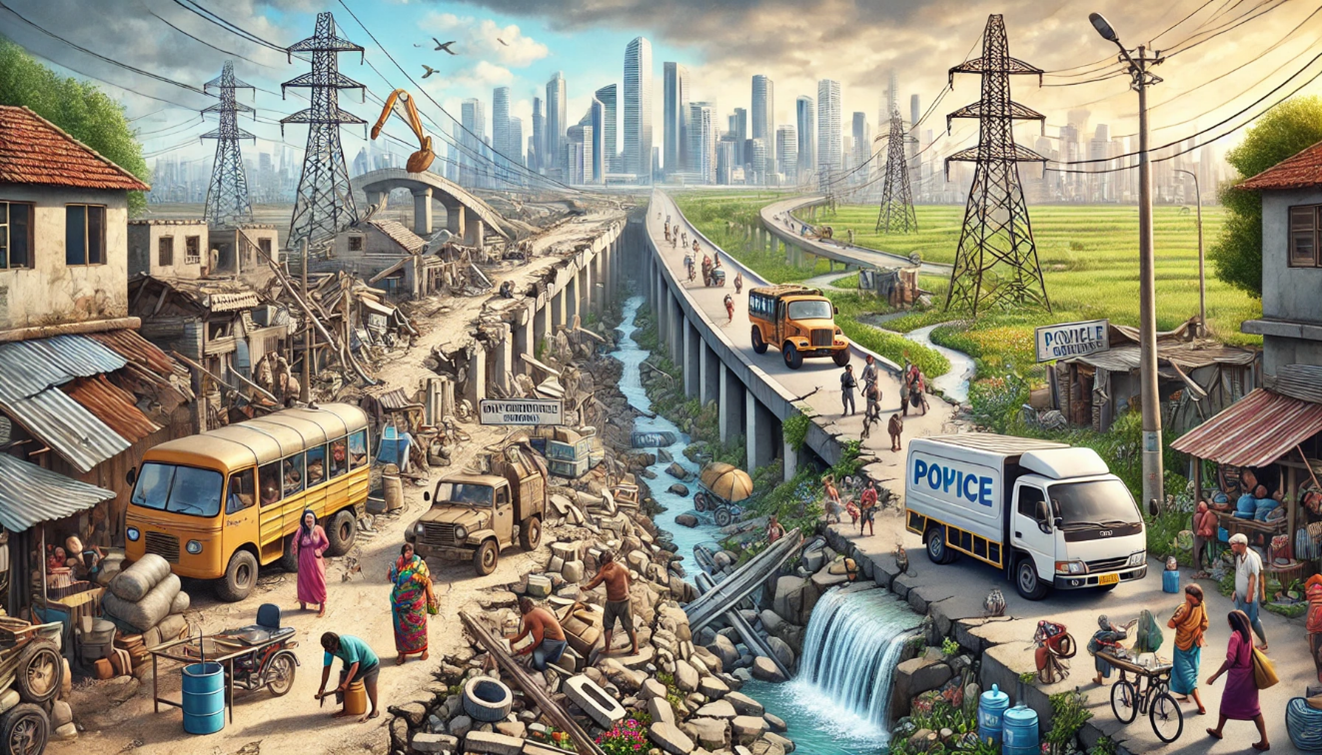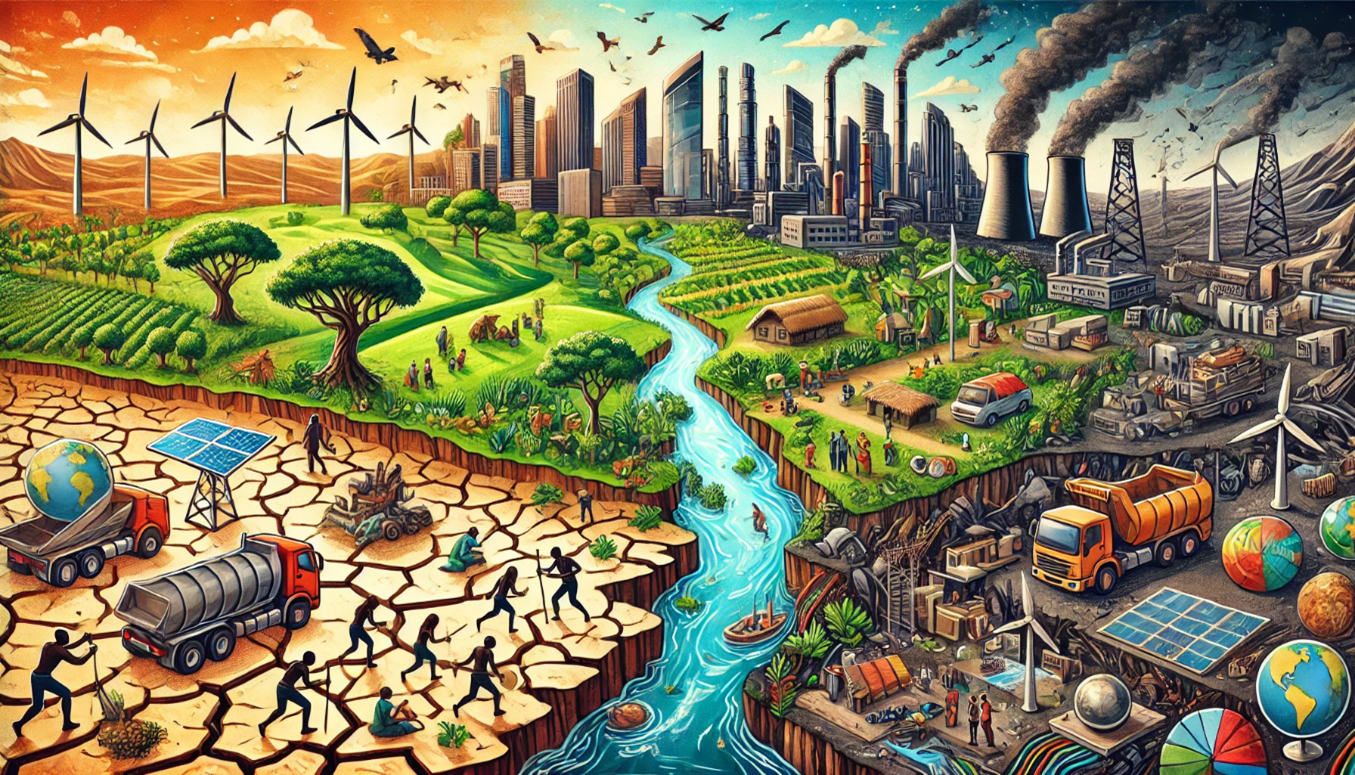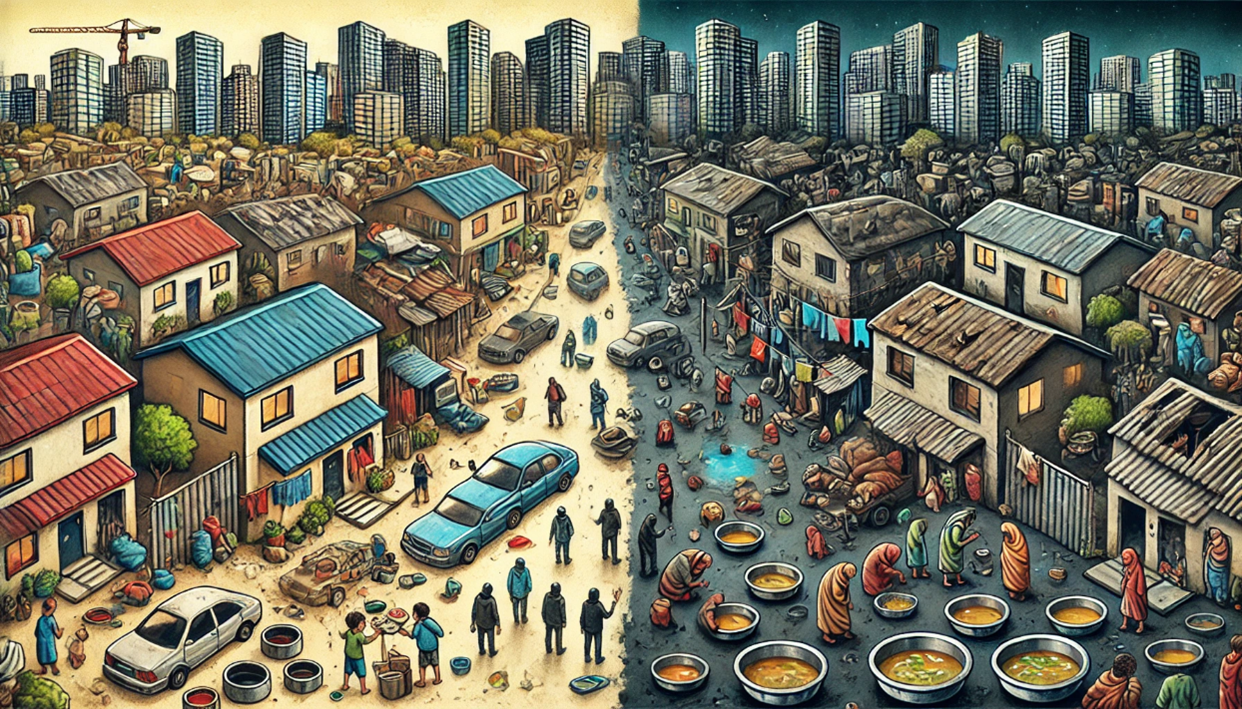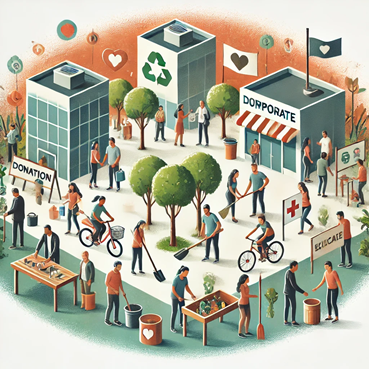What challenges does Africa face in achieving sustainable economic development?

What challenges does Africa face in achieving sustainable economic development?
by Sebastian 10:08am Jan 04, 2025

What challenges does Africa face in achieving sustainable economic development?
Africa faces several significant challenges in achieving sustainable economic development. Despite its vast resources, young and growing population, and potential for growth, the continent's progress is often hindered by a combination of structural, social, political, and environmental challenges. Below are the key obstacles:
1. Political Instability and Governance Issues
Many African countries struggle with political instability, corruption, and weak governance, which undermine efforts to achieve sustainable economic development.
Corruption:Corruption at both governmental and business levels is widespread and diverts resources meant for public welfare, undermining economic progress. It discourages foreign investment and exacerbates inequality.
Weak Institutions:Many African nations have weak political and legal institutions, with limited accountability and transparency. Poor governance reduces the effectiveness of policies and development programs.
Conflict and Violence:Armed conflicts, civil wars, and political violence are common in several parts of Africa (e.g., the Sahel region, Central African Republic, South Sudan), which disrupts economic activity, displaces populations, and stifles long-term development prospects.
2. Economic Dependence on Commodities
Many African countries rely heavily on the export of natural resources like oil, gas, minerals, and agricultural products. This makes them vulnerable to global commodity price fluctuations, which can undermine economic stability.
Volatility:Commodity-dependent economies face severe disruptions when global prices drop (e.g., the 2014 oil price crash), leading to budget deficits, reduced investment, and economic contraction.
Limited Value-Added Production: Most African countries export raw materials without significant value-added processing, meaning they do not fully benefit from higher-value industrial activities, leading to lost opportunities for economic diversification and job creation.
3. Inadequate Infrastructure
Africa's infrastructure deficits particularly in transportation, energy, and information technology represent a significant barrier to sustainable economic growth.
Transport and Connectivity: Many African countries lack efficient transportation networks (roads, railways, and ports) which hinders trade, increases costs, and impedes the free movement of goods and people.
Energy Access:While some African countries have made strides in expanding electricity access, many regions still face significant energy shortages. Inadequate access to energy limits industrialization, education, healthcare, and overall economic activity.
Digital Divide:Access to technology and digital infrastructure remains limited in many parts of Africa, slowing progress in sectors like e-commerce, fintech, and education.
4. Climate Change and Environmental Degradation
Africa is highly vulnerable to the effects of climate change and environmental degradation, which threaten agricultural productivity, water resources, and livelihoods.
Agriculture Vulnerability: Agriculture, which employs a large portion of the population, is highly sensitive to climate patterns. Changes in rainfall, rising temperatures, and droughts are undermining food security and reducing agricultural output.
Water Scarcity:Many regions in Africa face chronic water shortages, which affect not only agriculture but also human health and sanitation.
Environmental Degradation: Deforestation, soil erosion, desertification, and pollution are significant environmental challenges that hinder long-term sustainable development and exacerbate poverty in rural areas.
5. Poverty and Inequality
While Africa has experienced strong economic growth in recent years, poverty remains widespread, and economic benefits are often not equitably distributed, leading to high levels of inequality.
Income Inequality: A small segment of the population controls a disproportionate share of wealth, while large parts of the population live in extreme poverty. This exacerbates social unrest and limits the capacity for inclusive growth.
Rural Poverty:Rural areas, which make up a significant portion of the African population, often experience higher poverty rates compared to urban areas. Limited access to markets, education, healthcare, and infrastructure contributes to persistent poverty in these areas.
6. Education and Skill Development
Africa’s education systems face significant challenges, including limited access to quality education, high dropout rates, and a mismatch between skills provided by the education system and those needed by the job market.
Low Educational Attainment: Many African countries face issues of low literacy rates and insufficient access to primary, secondary, and tertiary education, which limits human capital development.
Youth Unemployment:Despite a young and growing population, the continent suffers from high youth unemployment. This is partly due to a lack of relevant skills, insufficient job creation in formal sectors, and the inability of education systems to keep up with evolving labor market demands.
7. Health Challenges
Africa faces significant health-related challenges that undermine human capital development and economic productivity.
Disease Burdens:Diseases like malaria, HIV/AIDS, and tuberculosis are major health threats in many African countries. The burden of these diseases diverts resources from development priorities and hampers workforce productivity.
Healthcare System Gaps: Many African countries have weak healthcare systems, with limited access to quality healthcare services, inadequate infrastructure, and insufficient healthcare personnel. The COVID-19 pandemic further exposed these vulnerabilities.
8. Debt and Fiscal Management
Many African nations are heavily burdened by public debt, which limits their ability to invest in critical infrastructure, education, and social services.
Rising Debt: Several African countries have seen their debt levels increase significantly in recent years, partly due to borrowing to finance infrastructure projects. This has led to debt servicing challenges and concerns over fiscal sustainability.
Debt Sustainability:The combination of high debt levels and low economic growth in some countries has raised concerns about debt distress and the ability to achieve long-term sustainable development.
9. Trade and Regional Integration Barriers
While initiatives like the African Continental Free Trade Area (AfCFTA) hold promise, trade integration and intra-Africa trade still face significant obstacles.
Customs and Tariffs:Despite the AfCFTA’s efforts, customs procedures, high tariffs, and non-tariff barriers still impede trade across the continent, limiting the growth potential of smaller economies.
Political and Regulatory Barriers: Trade policies and regulations vary significantly across African nations, creating an environment of complexity and uncertainty for businesses that seek to operate regionally.
10. External Dependence
Africa's economies remain highly dependent on external markets for trade, foreign investment, and aid. While this offers opportunities for economic development, it also exposes African countries to external shocks.
Dependence on Imports:African nations import many of the goods they consume, from food to machinery and technology. This reliance on imports can lead to trade imbalances and vulnerabilities to global supply chain disruptions.
Foreign Aid:While aid has supported African development, it can create dependencies and undermine the development of self-sustaining economic systems. It also sometimes encourages inefficient allocation of resources.
11. Regional Conflicts and Security Challenges
Ongoing conflicts and instability in certain African regions, such as the Sahel, the Horn of Africa, and parts of Central Africa, severely hinder economic development efforts.
Instability and Displacement: Conflict results in widespread displacement of populations, destruction of infrastructure, and loss of human capital. This limits countries’ ability to focus on long-term development goals and strains resources.
Terrorism and Extremism: The rise of extremist groups in regions such as the Sahel and East Africa further destabilizes these areas and disrupts economic activities.
Conclusion
Achieving sustainable economic development in Africa is a complex challenge that requires addressing a range of interconnected issues, from political stability and governance to infrastructure deficits and environmental sustainability. Although Africa has significant potential, overcoming these challenges will require comprehensive strategies that promote economic diversification, investment in human capital, regional integration, and effective governance. Solutions need to be tailored to the unique circumstances of each African country while fostering collaboration across the continent to tackle shared challenges.






